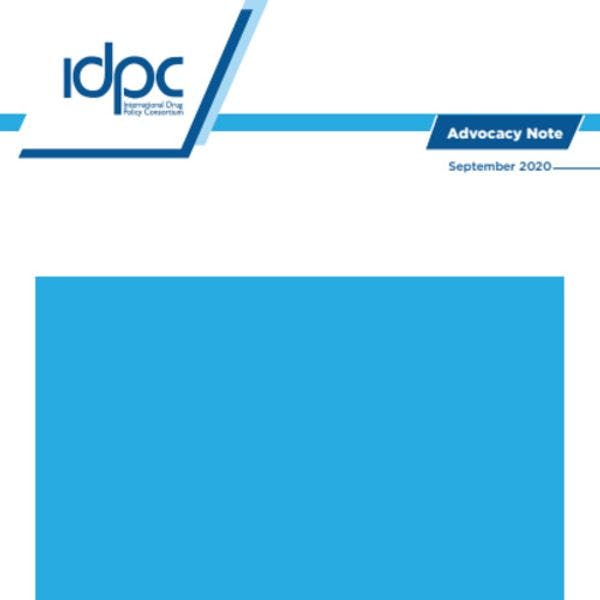Principles for the responsible legal regulation of cannabis
In recent years, discussions on the legal regulation of drugs – and in particular of cannabis – have moved in from the margins of drug policy debates. As of today, over 50 countries have adopted regulatory frameworks for medical cannabis, while a growing number of jurisdictions have regulated adult non-medical use, with many more poised to follow. As these legal frameworks are put in place, it is essential that they are designed to advance social justice, inclusion and human rights.
The legal regulation of a scheduled drug is not a silver bullet that solves all the harmful outcomes of prohibition. Legal regulation has the potential to become a powerful tool to redress decades of criminalisation, economic exclusion, and lack of access to appropriate health care. However, legal markets can also be captured by corporate interests, fail to include comprehensive measures to redress the harms brought by the ‘war on drugs’, and further criminalise people that remain in the illegal spaces inevitably persisting outside any regulated market.
The 198 members of the IDPC network operate in a wide variety of legal, political, and cultural contexts around the world. As befits this diversity, some IDPC members do actively advocate for legal regulation, while others focus on different public health and social justice measures, such as harm reduction and decriminalisation. But the legal regulation of cannabis, either for medical or adult non-medical use, is fast becoming an unescapable debate.
To address this challenge, this Advocacy Note proposes twenty principles that should inform any regulatory framework for cannabis markets, whether for medical or for adult non-medical use. They are arranged in five categories:
- First, legal markets should protect the health and human rights of people who use drugs, providing them with comprehensive access to health services, and with the full range of rights and protections ordinarily granted to consumers in legal markets.
- Second, legal markets must advance social justice by seeking to repair the harms of punitive policies, and ensuring that communities most affected by prohibition, which in many cases have been oppressed on the basis of race, gender identity or sexual orientation, are able to transition into the legal market -if they want.
- Third, regulatory frameworks should promote business models and international trade policies that advance economic inclusion, sustainable development, and climate justice throughout local, regional and global supply chains.
- Fourth, legal reforms must remove punishments for personal drug use and ancillary activities, including for substances or activities that fall outside the scope of regulated markets. If sanctions are still imposed for traffic-related activities, punitive responses should be strictly proportionate, and accompanied by other interventions.
- Fifth, legal regulation must adopt a gender-sensitive approach, in order to redress the disproportionate harm and exclusion experienced by women under prohibition.
- Finally, new regulatory frameworks should include mechanisms for collecting, analysing and disseminating comprehensive data on drug markets and drug use, as legal regulation is an ongoing iterative process that responds to the evolution of the market, and to lessons learnt.
Although this Advocacy Note only addresses the legal regulation of cannabis markets due to the currency and urgency of ongoing debates around the world, the twenty principles for responsible legal regulation and the underlying values of social justice, inclusion and human rights, can and should be extended to any proposal for legally regulating other scheduled drugs, with the appropriate adjustments. The IDPC network looks forward to expanding and updating these principles in view of the new initiatives, research, and regulatory experiences that are for sure to come in the near future.
Resources
An audio version of the Principles, in German is available here, courtesy of My Brain My Choice.
